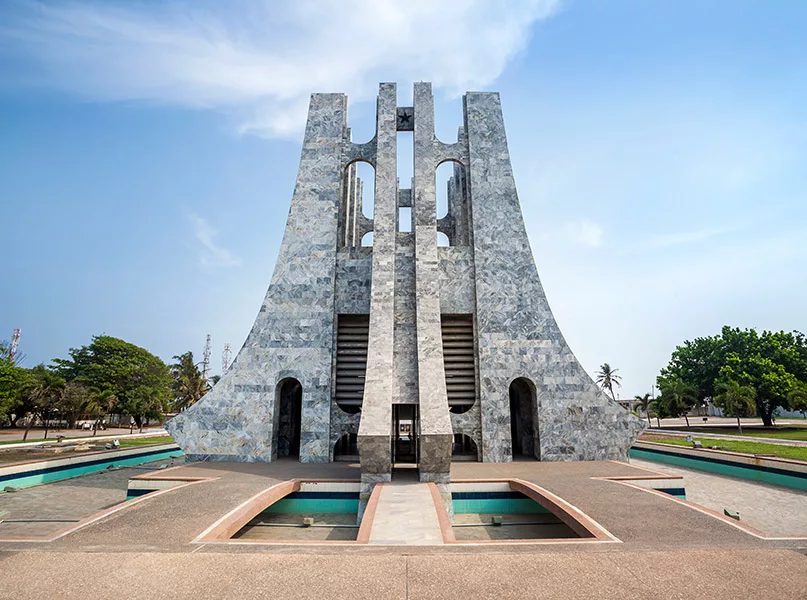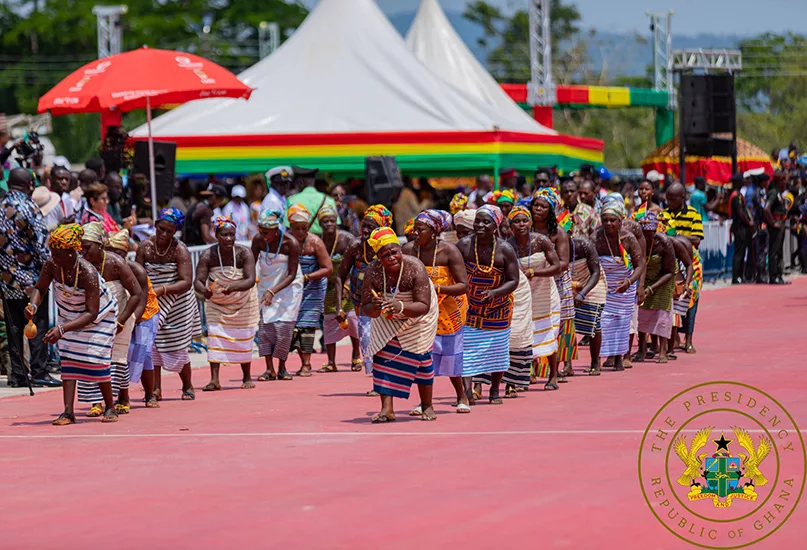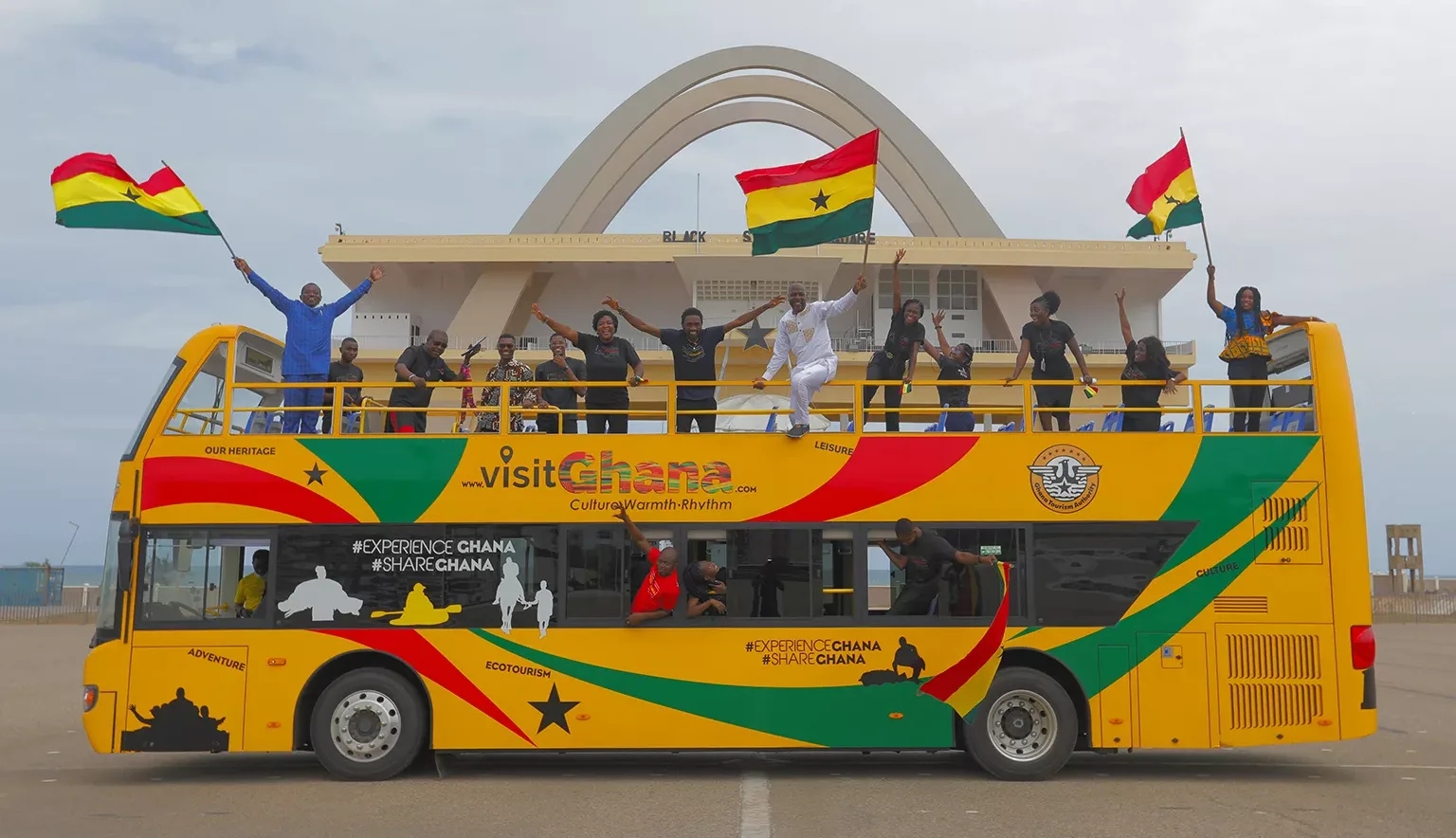We speak to Akwasi Agyeman, CEO of the Ghana Tourism Authority, who reflects on the country’s recent tourism influx and explains how his organisation has supported this growth whilst ensuring sustainable practices, promising a bright future for Ghanaian tourism.
Firstly, can you talk us through the origins of the Ghana Tourism Authority and its initial vision?
Akwasi Agyeman, CEO (AA): The Ghana Tourism Authority (GTA) was established as the Ghana Tourist Board over 50 years ago. It was renamed by the Parliament of Ghana in 2011 under Act 817.
GTA’s initial vision was to create a sustainable tourism industry that not only attracted visitors but also contributed to the socioeconomic development of Ghana.
This vision aimed to highlight Ghana’s rich cultural heritage, natural beauty, and warm hospitality.
What are your organisation’s current goals and responsibilities?
AA: Our primary goals include promoting Ghana as a top travel destination, enhancing visitor experiences, and ensuring sustainable tourism practices.
We carry out various activities such as targeted marketing campaigns, partnership development with local businesses, and community engagement initiatives to achieve these goals.
Notably, the ‘Beyond the Return’ initiative, launched in 2020, aims to build on the success of the ‘Year of Return’ in 2019 by encouraging the African diaspora to reconnect with their roots and invest in Ghana.
Why, in your opinion, should someone visit Ghana today?
AA: Ghana is a rich mixture of history, culture, and hospitality. It is like a buffet, offering visitors a wide array of choices to suit their preferences. Visitors today can explore our historic slave trade forts, vibrant markets, and stunning landscapes.
What defines Ghana is its people – warm, welcoming, and proud of their heritage – and our ability to offer immersive experiences that connect visitors with our culture. The ‘Year of Return’ in 2019 saw a significant increase in tourism with over 1.1 million visitors, highlighting the global African diaspora’s interest in reconnecting with their heritage.
How do you market and promote Ghana’s various travel offerings to both domestic and international tourists?
AA: We utilise a multi-channel approach to market Ghana’s travel offerings, including social media campaigns, collaboration with travel influencers, tour operators, and participation in international travel fairs.
We also work closely with local travel agencies to showcase unique experiences that appeal to both domestic and international tourists.
Our ‘December in GH’ campaign, which promotes Ghana as a prime destination for December holiday celebrations, has been particularly successful in attracting visitors during the festive season.

As a culturally vibrant destination with a busy events calendar, what type of traveller does Ghana typically attract?
AA: Ghana attracts a diverse range of travellers, including culture enthusiasts, adventure seekers, and those interested in history.
Our busy events calendar – featuring festivals, art exhibitions, and music shows – attracts many who appreciate cultural immersion and vibrant social experiences.
Heritage tourism in particular has seen a surge, with many from the global African diaspora visiting to explore their ancestral roots.
What does the nation offer in terms of alternative tourism models?
AA: Ghana offers opportunities in agritourism, ecotourism, and community-based tourism experiences. These initiatives allow visitors to connect with local communities and nature.
We aim to develop these areas further, with specific goals related to sustainable practices and community involvement in tourism activities.
For example, our ecotourism projects in the Kakum National Park and Mole National Park are designed to promote conservation and provide economic benefits to local communities. In the last few years, we have passed legislation which seeks to get communities and traditional authorities more involved in community-based tourism experiences.
As research is the backbone of your work, what transformational trends are you acutely aware of and how are you utilising them?
AA: By conducting thorough research and analysis, we stay informed of the latest trends, such as the rise in demand for experiential travel and wellness tourism.
We are adapting our offerings to align with these trends, implementing nature-focused packages and authentic local experiences to cater to evolving tourist preferences.
The increasing interest in heritage tourism among the African diaspora has also influenced our strategies, leading to the development of more culturally immersive experiences. The use of technology and artificial intelligence (AI) to drive marketing and customisation is also something we have been doing recently.

What standards, classifications, and licences do you have in place to regulate and grade tourism enterprises, facilities, and services in the country?
AA: We have established standards and classifications for tourism enterprises, which include licensing requirements for hotels, tour operators, and attractions.
This ensures quality services and safety for tourists, contributing to a positive experience in Ghana.
Our regulatory framework is designed to support sustainable tourism development and protect the interests of both tourists and local communities. A few of the regulations include:
- Registration and Licensing of Food, Beverage, and Entertainment Enterprises Regulations, 2016 (L.I. 2238) – This regulation mandates the registration and licensing of food, beverage, and entertainment enterprises to ensure they meet specific standards.
- Accommodation and Catering Enterprises Regulations, 1979 (L.I. 1205), as amended by Accommodation and Catering Enterprises (Amendment) Regulations, 2001 (L.I. 1686) – These regulations govern the standards and operations of accommodation and catering enterprises.
- Regulation of Tourist Attractions and Sites (L.I. 2393) – This regulation requires all tourist sites and attractions to be licensed by GTA. It aims to ensure the safety, maintenance, and proper management of these sites.
Finally, are you optimistic about the future of the tourism industry in Ghana?
AA: Yes, I am very optimistic about the future of the tourism industry in Ghana. With a global focus on sustainable travel and unique cultural experiences, Ghana is well-positioned to attract more visitors.
Our commitment to improving infrastructure and promoting responsible tourism will pave the way for continued growth and success in the coming years.
The success of initiatives like the ‘Year of Return’ and ‘Beyond the Return’ demonstrates the potential for heritage tourism to drive economic growth and foster cultural connections.































